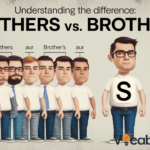In the ever-evolving landscape of the English language, debates over proper usage and spelling are common.
One such debate centers around the correct way to write about a person’s set of skills. Should it be “skill-set,” “skillset,” or “skill set”? This article delves deep into this linguistic conundrum, exploring the nuances of each variant and their applications in various contexts.
The Origins of the Term
The concept of a skill set has been around for decades, but its usage in professional contexts has surged in recent years. As businesses and industries have become more specialized, the need to describe specific combinations of abilities has grown. This evolution in workplace communication has led to increased attention on the precise terminology used to describe these competencies.
You Might Like: Long Term or Long-Term | What’s the Right Choice in Writing?
Breaking Down the Options
Let’s examine each variant of the term in detail:

Skill Set
The two-word form “skill set” is widely considered the most traditional and formally correct version. It follows standard English language rules for compound nouns, where the first word modifies the second. In this case, “skill” describes the type of “set” we’re referring to.
Skillset
The single-word “skillset” represents a newer trend in language evolution. As compound words become more common in everyday usage, it’s natural for spaces to disappear. This process, known as compound nouns formation, is a key aspect of word formation in linguistics.
Skill-Set
The hyphenated version “skill-set” serves as a middle ground between the other two forms. Hyphens often indicate a closer relationship between words than a space would, but not as close as a completely combined word.
Context Matters
The choice between these variants often depends on the context of use. Let’s explore how different scenarios might influence which form is most appropriate.

Professional Writing
In formal professional writing, such as job descriptions or academic papers, adhering to established style guides is crucial. Most style guides recommend using “skill set” as two separate words.
| Style Guide | Recommended Usage | Notes |
|---|---|---|
| AP Stylebook | skill set | Widely used in journalism |
| Chicago Manual of Style | skill set | Preferred in many academic contexts |
| APA Style | skill set | Common in social sciences |
| MLA Style | skill set | Frequently used in humanities |
| Oxford Style Manual | skill set | British English preference |
| Guardian Style Guide | skill set | Another British English standard |
| Microsoft Manual of Style | skill set | Often used in technical writing |
| The Economist Style Guide | skill set | Used in business writing |
| New York Times Manual | skill set | Another journalistic standard |
| Reuters Handbook | skill set | Used in international journalism |
Resume Building
When crafting a resume, consistency is key. Choose one form and stick with it throughout the document. Here’s how different industries might approach this:
| Industry | Preferred Usage | Reasoning |
|---|---|---|
| Technology | skillset | Reflects modern, fast-paced nature |
| Finance | skill set | Adheres to traditional formal writing |
| Creative Fields | skill-set | Balances creativity and professionalism |
| Healthcare | skill set | Emphasizes precision and clarity |
| Education | skill set | Aligns with academic writing standards |
| Manufacturing | skill set | Focuses on specific, defined abilities |
| Hospitality | skill set | Emphasizes customer service competencies |
| Legal | skill set | Adheres to formal writing conventions |
| Marketing | skillset | Reflects dynamic, evolving industry |
| Non-profit | skill set | Emphasizes clarity and accessibility |
Email Communication
In less formal settings like email, the choice might depend on the relationship between the sender and recipient. Let’s look at some example scenarios:
Emma, a marketing coordinator, writes to her team:
“Hey everyone, I’m putting together a list of our team’s skillsets for the upcoming project. Could you each send me your top five skills by Friday?”
Here, the casual nature of team communication allows for the more modern “skillset” form.
Now, consider James, a job applicant, writing to a potential employer:
“Dear Mr. Thompson, I believe my diverse skill set aligns perfectly with the requirements outlined in your job posting. I’d welcome the opportunity to discuss how my experience in data analysis and project management could benefit your organization.”
In this more formal context, James opts for the traditional “skill set” to convey professionalism.
You Might Like: Inbetween or In Between? Which Is Correct?
The Role of Industry Jargon
Different industries often develop their own linguistic preferences.

The tech sector, known for its rapid pace and innovative spirit, might lean towards “skillset” as a single word. In contrast, more traditional fields like law or academia might stick with “skill set” as two words.
| Industry | Common Usage | Example |
|---|---|---|
| Technology | skillset | “Our dev team has a diverse skillset.” |
| Law | skill set | “A lawyer’s skill set must include analytical thinking.” |
| Medicine | skill set | “Surgeons require a specialized skill set.” |
| Advertising | skillset | “Creatives need a versatile skillset.” |
| Education | skill set | “Teachers develop a broad skill set.” |
| Finance | skill set | “Analysts need a quantitative skill set.” |
| Journalism | skill set | “Reporters rely on a varied skill set.” |
| Engineering | skill set | “Engineers cultivate a technical skill set.” |
| Hospitality | skill set | “Customer service is a key skill set.” |
| Sports | skill-set | “Athletes develop a unique skill-set.” |
The Impact of Globalization
As English continues to serve as a global language of business, regional variations in usage have become more apparent.

American English, British English, and other variants may have slightly different preferences when it comes to compound words like “skill set.”
| English Variant | Preferred Usage | Example |
|---|---|---|
| American English | skill set / skillset | “He has an impressive skill set.” |
| British English | skill set | “Her skill set is quite comprehensive.” |
| Canadian English | skill set | “The job requires a diverse skill set.” |
| Australian English | skill set | “We’re looking for a specific skill set.” |
| Indian English | skill set | “The course aims to enhance your skill set.” |
| South African English | skill set | “A broad skill set is advantageous.” |
| Singapore English | skill set | “Developing a robust skill set is crucial.” |
| New Zealand English | skill set | “The role demands a unique skill set.” |
| Irish English | skill set | “Expanding your skill set is beneficial.” |
| Philippine English | skill set / skillset | “A versatile skill set is valued.” |
The Influence of Technology
The digital age has significantly impacted language trends, including the way we write compound words. The need for concise communication in character-limited platforms like Twitter has led to the increased use of combined forms like “skillset.”
| Platform | Character Limit | Preferred Usage | Reasoning |
|---|---|---|---|
| 280 | skillset | Space-saving | |
| None | skill set | Professional setting | |
| None | skill set / skillset | Varies by context | |
| 2,200 (captions) | skillset | Informal, trendy | |
| TikTok | 2,200 | skillset | Youth-oriented |
| 40,000 | skill set / skillset | Depends on subreddit | |
| YouTube | None | skill set | SEO considerations |
| Medium | None | skill set | Long-form content |
| Snapchat | None | skillset | Brief, casual content |
| 500 | skillset | Visual, concise format |
The Role of AI and NLP
As artificial intelligence and natural language processing become more prevalent, they play a significant role in shaping language usage. AI-powered writing assistants and text analysis tools often need to recognize and process all variants of terms like “skill set.”
| AI Application | Approach to “Skill Set” | Implications |
|---|---|---|
| Chatbots | Recognize all variants | Improved user interaction |
| Resume Scanners | Programmed for variants | Fairer job application process |
| Writing Assistants | Suggest based on context | Adaptable writing support |
| SEO Tools | Analyze all forms | Comprehensive keyword research |
| Translation Software | Context-based translation | Accurate cross-language communication |
| Grammar Checkers | Flag inconsistencies | Improved writing consistency |
| Text Classifiers | Train on all variants | Better content categorization |
| Sentiment Analysis | Process all forms | More accurate emotional assessment |
| Voice Assistants | Recognize spoken variants | Enhanced voice command accuracy |
| Auto-complete Systems | Offer context-based suggestions | Streamlined typing experience |
Style Guides and Standardization
Many organizations rely on style guides to ensure consistency in their written communication. These guides often provide specific instructions on compound word usage, including terms like “skill set.”
| Organization | Style Guide | “Skill Set” Recommendation |
|---|---|---|
| Associated Press | AP Stylebook | skill set |
| University of Oxford | Oxford Style Manual | skill set |
| American Psychological Association | APA Style | skill set |
| Modern Language Association | MLA Handbook | skill set |
| The Economist | The Economist Style Guide | skill set |
| Microsoft | Microsoft Manual of Style | skill set |
| Google Developer Documentation Style Guide | skill set | |
| Wikipedia | Wikipedia:Manual of Style | skill set |
| United Nations | United Nations Editorial Manual | skill set |
| IEEE | IEEE Editorial Style Manual | skill set |
The Importance of Clarity
Regardless of which form you choose, the most crucial factor is clarity in communication. The primary goal of language is to convey meaning effectively. If your choice of “skill set,” “skillset,” or “skill-set” might confuse your audience or detract from your message, it’s worth reconsidering.
You Might Like: Pre vs Post | Which Prefix to Use?
Conclusion
In the end, the choice between “skill-set,” “skillset,” and “skill set” often comes down to context, personal preference, and adherence to style guides. While “skill set” remains the most widely accepted form in formal writing, the other variants are gaining traction in more casual or specialized contexts.
As with many aspects of language, usage may continue to evolve. What’s considered correct today might shift in the future. The key is to stay informed about current language trends and to prioritize clear, effective communication in your chosen field.
Remember, your skill set (or skillset, or skill-set) extends far beyond your ability to navigate linguistic nuances. Focus on developing and articulating your abilities clearly, and you’ll be well-equipped to succeed in any professional context.

Emma Carter is an experienced blogger at Vocablarified. She enjoys helping people expand their vocabulary and improve their language skills. With a warm and approachable writing style, Emma makes learning new words fun and accessible. When she’s not writing, she loves reading books and discovering new phrases to share with her readers. Emma is passionate about making language learning an enjoyable journey for everyone.







